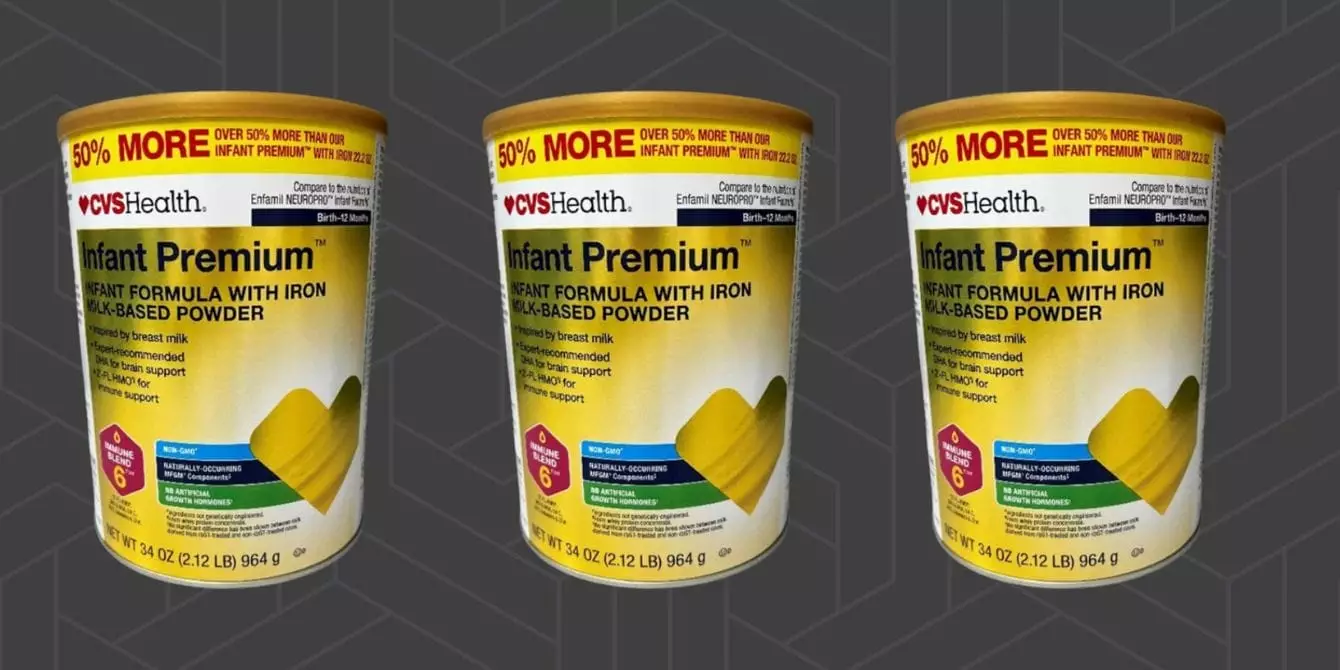In a startling development, a recall affecting 16,500 cans of baby formula has been announced by Perrigo, a prominent manufacturer of infant nutrition products. This voluntary recall comes after routine testing identified potentially excessive levels of vitamin D in their store-brand Premium Infant Formula with Iron Milk-Based Powder. While no adverse health incidents have yet been reported, the heightened levels of vitamin D present a serious concern, particularly for vulnerable infants.
The situation began to unfold when Perrigo detected elevated vitamin D concentrations in three specific lots of infant formula during standard quality control procedures. As a proactive measure to ensure the safety of consumers, the company has initiated a recall of the affected products, which were distributed primarily to H-E-B grocery stores across Texas and CVS locations in several states including Florida, California, and South Carolina. The recalled items, which bear use-by dates extending to November 2025, underscore the ongoing commitment to consumer safety in the food production sector.
The FDA’s involvement signals the seriousness of the situation. Though the agency indicates that most infants consuming the product are unlikely to suffer adverse effects, it acknowledges that certain groups—particularly those with preexisting health issues such as impaired renal function—might be at risk for serious complications. This matter raises questions about the robustness of quality control measures and the need for greater vigilance in the infant formula industry.
Vitamin D is crucial for an infant’s developing body, aiding in calcium absorption and overall skeletal health. However, just as inadequate amounts can lead to deficiencies, excessive intake can result in toxicity. The American Academy of Pediatrics (AAP) outlines symptoms of vitamin D toxicity, which may appear subtle but could lead to significant health issues if not addressed. Symptoms such as poor feeding, dehydration, and lethargy could potentially escalate to more severe conditions, including seizures and kidney failure in extreme cases.
While the AAP emphasizes that vitamin D-related health issues are rare, the implications of this recall highlight the delicate balance that exists in pediatric nutrition. Parents and caregivers are urged to monitor their infants closely for any unusual signs that might suggest health struggles, particularly if they suspect the use of the affected formula.
The immediate concern for parents is to identify whether they possess any of the recalled formula cans. The FDA has provided specific lot codes for consumers to verify against their supplies: lot code T11LMYC (use by November 11, 2025) for CVS and lot codes T11LMXC (use by November 11, 2025) and T09LMXC (use by November 9, 2025) for H-E-B stores. Checking for these codes is a simple but necessary step to ensure the safety of your infant’s nutrition.
If any cans from the affected lots are found, parents should refrain from using them and can contact Perrigo Consumer Affairs for guidance. The company has established a hotline for inquiries and encourages consumers to report any adverse health events directly to the FDA’s MedWatch program.
This incident serves as a poignant reminder of the necessity for constant vigilance in baby food safety. The foundational trust parents place in brands and products for their children’s nutrition cannot be overstated; recalls such as this can, understandably, lead to concerns regarding broader safety and quality standards within the industry.
Furthermore, this situation underscores the importance of transparency and proactive communication from manufacturers. Ensuring parents are promptly informed about potential hazards can empower them to make safer choices. As consumers, staying informed and vigilant about infant nutrition, alongside maintaining open lines of communication with pediatric healthcare providers, is vital in safeguarding child health.
As the situation evolves, parents are encouraged to stay updated through reliable sources and to remain proactive about their infant’s nutritional needs. This recall, while concerning, is a further testament to the necessary checks and balances that exist within the food supply chain aimed at protecting our most vulnerable population—infants.

